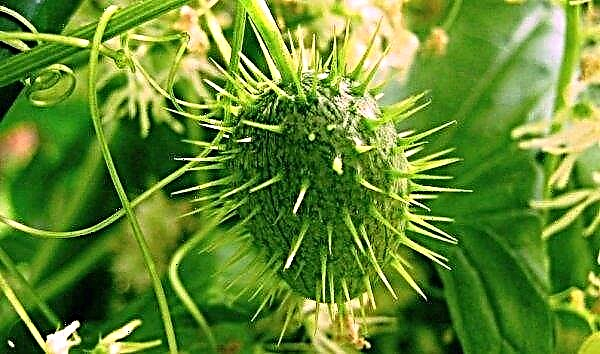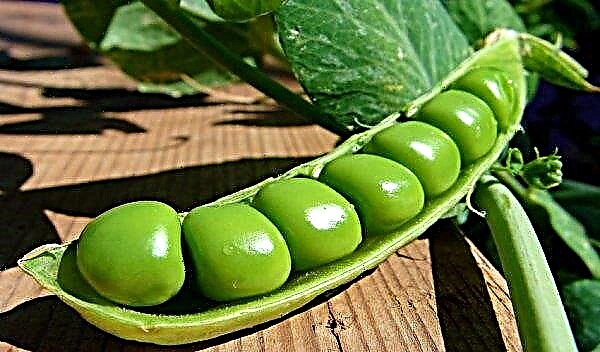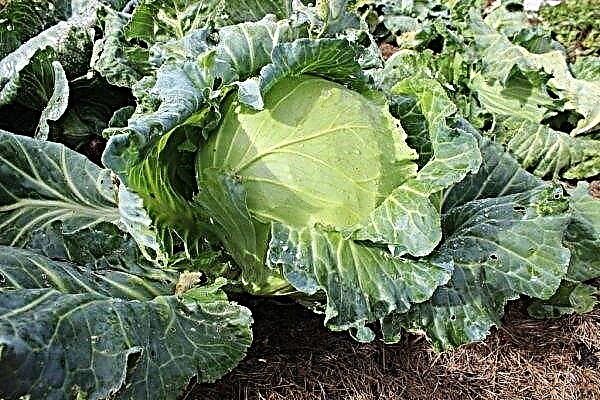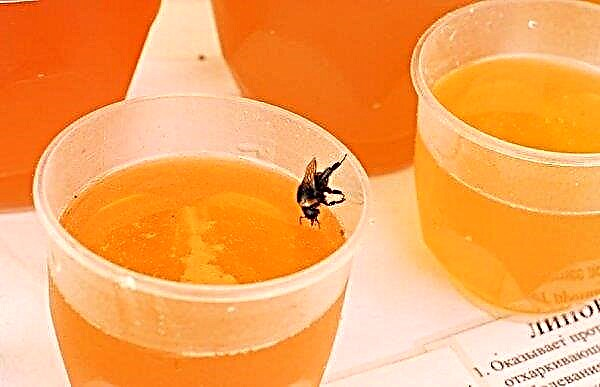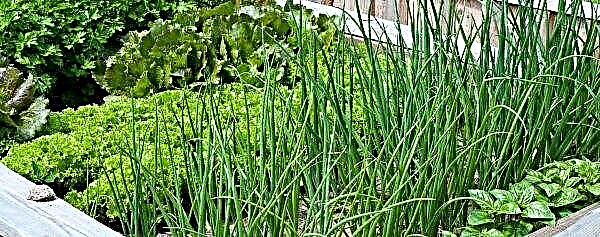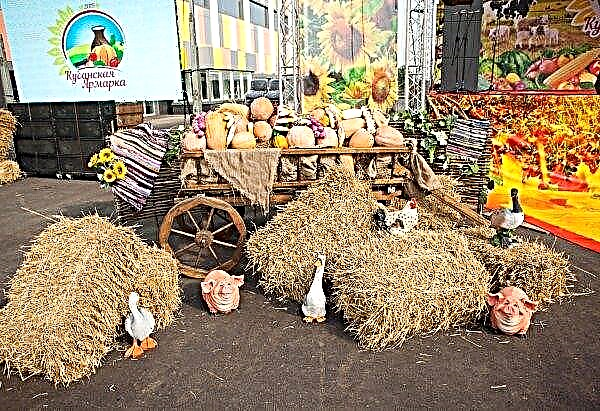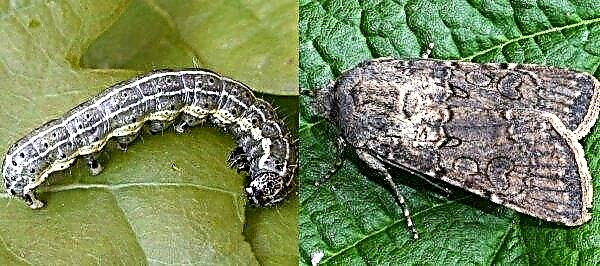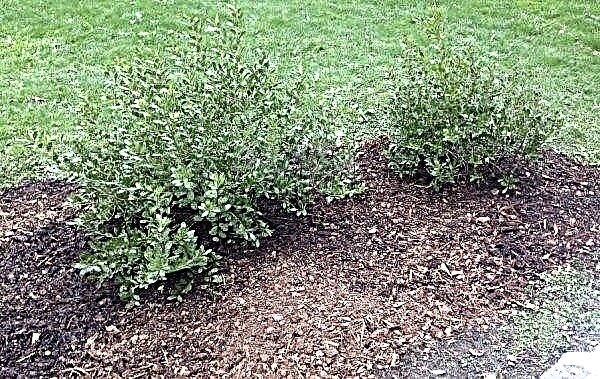Bitter cucumbers are extremely healthy, albeit unpleasant in taste. They contain substances that reduce pain, as well as preventing the development of cancer. Read about what causes this phenomenon and how bitter cucumbers are useful for the human body.
Why are cucumbers bitter?
The bitterness of cucumbers is a reaction to irritating factors that cause stress to the plant body. For this reason, cucurbitacin hormones begin to be produced in the fetal tissues. After the first stress, the ability to develop them is passed on to all subsequent generations.
Did you know? Christopher Columbus always took fresh and pickles with him on trips. At that time, these products were actively used as a means of combating scurvy for sailors.
The main factors provoking the production of cucurbitacins:
- lack of light due to thickening of the landing;
- excess moisture;
- oversupply of the sun;
- seedlings suffered a fungal disease;
- watering with cold water.
Video: why cucumbers are bitter
Beneficial features
Bitter cucumbers do not taste good, but are not poisonous. Bitterness helps in stimulating the gallbladder. In addition, bitter vegetables reduce appetite and help regulate blood sugar. This feature is due to the content of lipids and saponins in the composition of the bitter vegetable.
Cucurbitacins are the bitter components of the fetus and, at the same time, the most useful. They have a pronounced analgesic effect, prevent the proliferation of pathological cells in the body. They are considered as potential anti-cancer elements. In China, bitter cucumbers are grown according to a special technology to prepare medicines from them.
Did you know? Cleopatra retained and enhanced its natural beauty using cucumbers. She consumed them raw almost daily, and also made cucumber masks from them.
Harm and contraindications
Whether bitter greenbacks are dangerous for a person depends on their state of health. Healthy people can safely eat bitter cucumbers, but those who have disorders in the work of some organ systems should abandon them.
- Bitter fruits, and indeed fresh cucumbers, are prohibited in the following cases:
- disorders in the thyroid gland;
- lactation - this product can cause stomach cramps and even diarrhea in an infant;
- urolithiasis, renal failure and nephritis: diuretic properties can provoke severe pain, and during exacerbation - swelling;
- hypertension - an increased liquid content in a vegetable increases the load on the vessels;
- ulcers located in any of the digestive tract, colitis, enteritis, gastritis - accelerated metabolism contributes to the accelerated production of gastric juice, which corrodes the internal organs of the gastric tract.
Bitter greenbacks can provoke vomiting or diarrhea even in healthy people, when the daily norm is exceeded. It is better not to consume more than one bitter fruit per day.
Why cucumbers are bitter in the open ground
There are several reasons why a cucumber crop growing in open areas experiences stress:
- grade features - There are varieties predisposed to enhance the growth of cucurbitacin cells;
- too bright lighting - mainly, direct sunlight directly on fruits not covered by foliage;
- location near bushes of raspberries, blackberries, strawberries - plants act on the culture as aggressors, taking all nutrients from the soil and drawing moisture;
- sowing seeds in low beds - in them the soil warms up less and is more exposed to temperature extremes;
- watering with cool water - its temperature should not differ from the soil temperature or should be a maximum of + 2 ° C ... + 3 ° C lower.
Important! If the fruits that were planned to be left for seedlings are bitter, at least a few copies, it is better to completely replace the variety by buying new seeds on the market.
Why cucumbers are bitter in the greenhouse
The main reasons for the activation of cucurbitacin cell growth:
- low humidity threshold;
- low nitrogen and potassium content in the soil;
- deficiency or excess moisture in the soil;
- non-compliance with the irrigation regime.

How to prevent the bitterness of cucumber
So that vegetables do not grow bitter, it is necessary to adhere to elementary agrotechnical methods:
- the introduction of nitrogenous fertilizers only in the initial phase of growth;
- watering with warm water (temperature + 23 ° С ... + 25 ° С);
- when growing in greenhouse conditions - maintaining air humidity within 60–70%;
- Harvest on time - most often overgrown specimens are bitter;
- selection of varieties containing antigen, which helps stop the growth of cucurbitacin cells in stressful situations.
What to do with the bitter harvest of cucumbers
If bitterness is concentrated only in the peel, you can cut it and eat only the sweet part. To eliminate bad taste, try soaking products for 12 hours in cold water. Change water every 3 hours. After 12 hours, drain the water, wash the cucumbers - and you can use them for their intended purpose. The surest way to eliminate the unpleasant bitter taste is heat treatment, i.e. conservation. Bitter fruits are great for winter harvesting.
Hybrid cucumbers without bitterness
Cucurbitacin is present in all cucumber fruits, but in a stressful situation, cells begin to actively produce it. This process can be controlled at the gene level. The dominant gene is responsible for the increase in cucurbitacin level, and the recessive one for its stop. This observation made it possible to create genetically modified varieties, in other words, hybrids that are completely not prone to the accumulation of bitterness. There are varieties intended for cultivation in greenhouses and open ground. The only negative is the inability of hybrids to maintain their quality characteristics in the second generation.
There are varieties intended for cultivation in greenhouses and open ground. The only negative is the inability of hybrids to maintain their quality characteristics in the second generation.
Important! The seeds of hybrids used for reproduction give bitter fruits, so they need to be bought from a reliable producer every year, and not collected on their own.
Hybrid varieties that are not capable of accumulating bitterness include:
Bitter greenbacks are not harmful to the human body, but they have a specific taste and, if consumed excessively, can cause gastrointestinal upset. The main reason for this phenomenon is poor-quality plant care. You can correct the situation by following all the rules of care or by choosing a hybrid variety that is not prone to bitterness.


